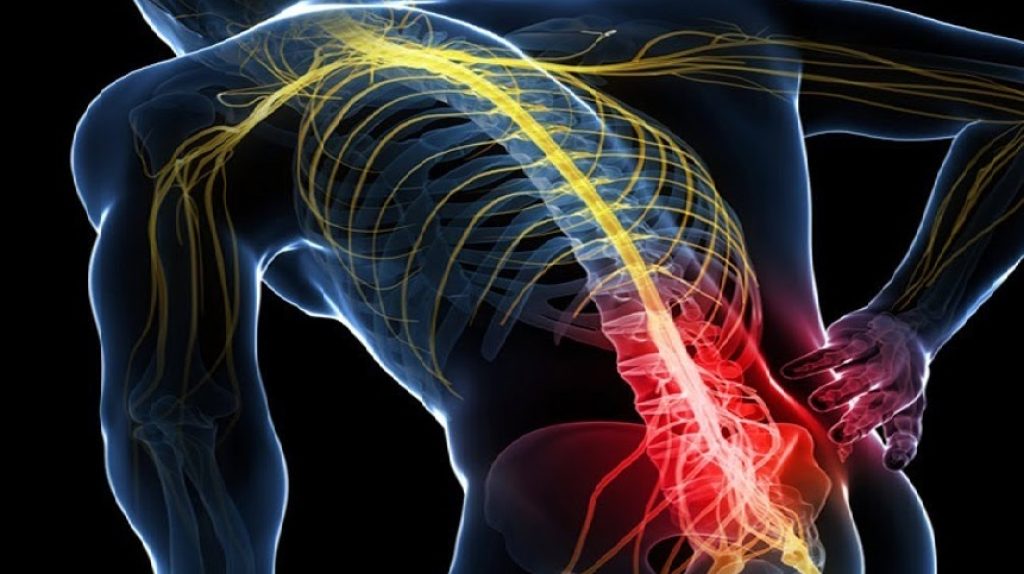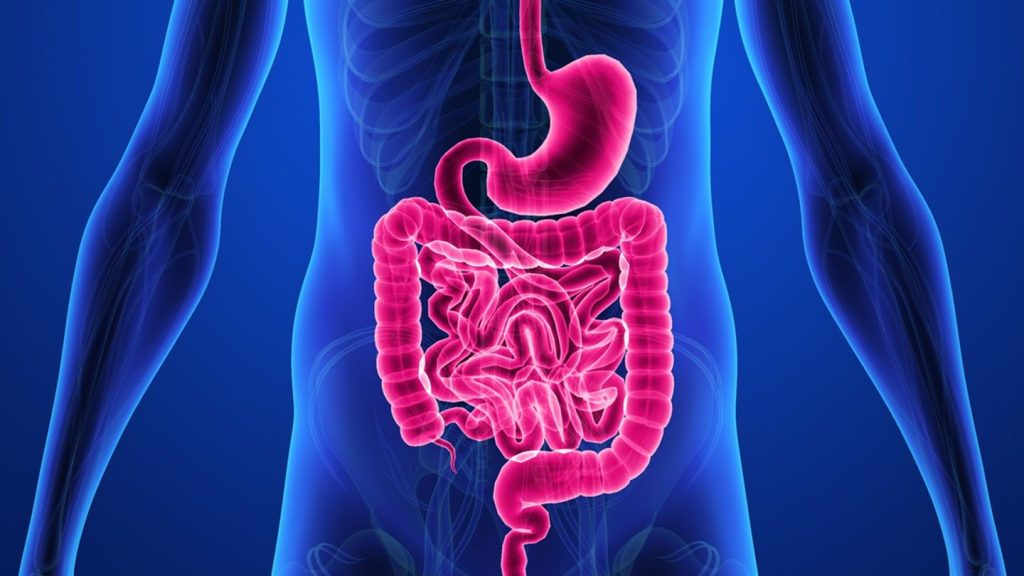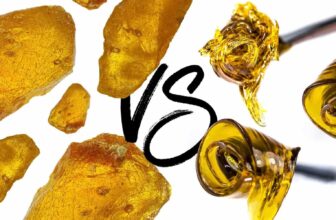
CBD is a natural plant compound that can be extracted from the cannabis sativa hemp plant. It’s used for medicinal purposes and is becoming very popular within the healthcare industry because of its many incredible health benefits.
CBD oil is making a big name for itself in the health industry right now. Those who use CBD claim that it has helped them with numerous medical ailments, including cancer related symptoms.
Maybe you’re not sure if you want to try CBD oil, but you are willing to do some research on CBD oil to find out more about its many health benefits. In this article, we outline the 8 main benefits of CBD and the research behind the many benefits it has to offer.
Table of Contents
What is CBD Oil?

Source: unsplash.com
Cannabidiol (CBD) is an active chemical compound that is present in marijuana as well as agricultural hemp. Nearly all natural hemp and marijuana products are derived from industrial hemp, which contains virtually no tetrahydrocannabinol (THC).
Contrary to popular belief, CBD oil is not marijuana.
There are numerous benefits associated with CBD oil making it a viable option to help manage and support various medical conditions.
Is CBD Legal?
CBD is legal on the federal level in all states in the United States.
The US Drug Enforcement Administration (DEA) lists the drug code for marijuana as Schedule 1. This means that the federal government recognizes marijuana and its derivatives as having no known medical benefit, while also suggesting a high potential for abuse.
The U.S. congress had decided from the date of December 10th 2018, to change the Controlled Substances Act by removing hemp from the Schedule 1 status.
There were still requirements that needed to be followed, but the outcome was the legalization of hemp with the possibility to change the view of the drug.
Not to mention that with the legalization of hemp being allowed, individuals were able to import it into the country for research purposes. With the legalization, it became possible for hemp not only to be imported, but also to be grown.
Industrial hemp is produced in accordance with federal and state guidelines, and must include less than 0.3 percent of THC by volume. Anything with more than 0.3% THC is deemed marijuana and is therefore illegal, although this threshold is not always strictly enforced.
As a result, the cultivation and possession of marijuana is illegal in the United States; however, CBD oil is not considered a scheduled drug.
The Benefits of CBD Oil
There are plenty of reasons to acquire, use, and consume CBD oil. However, this natural supplement is a subject of debate. Many people are not aware that it even exists and some have many prejudices against it regardless of its natural origin.
Here are some of the benefits associated with CBD oil:
1. May Ease Pain

Source: unsplash.com
No one seems to know exactly when cannabis for pain first came about except that it was used as early as 2900 B.C. in China and for medicinal purposes.
In the 19th century, scientists found that marijuana contains chemicals similar to ones found in opiates. The scientists started the extraction process in which the main active component was found to be as effective as one of the strongest opiates: morphine.
Both substances contain compounds called cannabinoids and opioids, which interact with the brain to produce their effects.
However, marijuana and opiates differ in the relative amounts of these compounds, as well as in the other chemicals they contain. For example, marijuana contains high levels of THC, the compound that produces its psychoactive effects, while opiates are mainly composed of opioids like morphine and codeine.
Additionally, marijuana contains other chemicals that may have therapeutic benefits, while opiates are associated with a range of harmful side effects.
Doctors started to use hashish and cannabis oil in the preparation of drugs to deal with severe pain caused by cancer, for example.
CBD oil has been shown to be an effective treatment for reducing pain. This includes both chronic and acute pain. Additionally, the anti-inflammatory properties of CBD oil can also help to reduce pain.
There is not enough evidence to support using CBD oil as a treatment for reducing pain. However, here are some studies that have looked into this potential use:
- Use of Cannabidiol (CBD) for the Treatment of Chronic Pain
Best Practice & Research Clinical Anaesthesiology
Volume 34, Issue 3, 2024
Pages 463-477
ISSN 1521-6896
https://www.sciencedirect.com/science/article/pii/S1521689620300458 - The Effectiveness of Topical Cannabidiol Oil in Symptomatic Relief of Peripheral Neuropathy of the Lower Extremities
Current Pharmaceutical Biotechnology
Volume 21 , Issue 5 , 2024
Pages 390 – 402
ISSN (Print): 1389-2010
ISSN (Online): 1873-4316
https://www.ingentaconnect.com/content/ben/cpb/2020/00000021/00000005/art00007 - Cannabis and Cannabidiol (CBD) for the Treatment of Fibromyalgia
Best Practice & Research Clinical Anaesthesiology
Volume 34, Issue 3, 2024
Pages 617-631
ISSN 1521-6896
https://www.sciencedirect.com/science/article/pii/S1521689620300781
How CBD Works to Relieve Pain?

Source: medicalnewstoday.com
We must first talk about the endocannabinoid system to understand how CBD could help improve pain-related conditions.
The ECS is a system in the human body that is responsible for a variety of physiological processes. These include memory, appetite, pain sensation, and mood.
The Endocannabinoid System is made up of cannabinoid receptors, endogenous cannabinoids, and enzymes that break down cannabinoids.
- The cannabinoid receptors are found in various parts of the body, including the brain, spinal cord, and immune system.
- The endogenous cannabinoids are molecules that are produced by the body and interact with the cannabinoid receptors.
- The enzymes that break down cannabinoids are found in the liver and gut.
CBD works by reducing the intensity of pain signals, acting as a sort of gateway to suppress the transmission of pain signals and inhibit the pain receptors sending the pain signals.
It does this by interacting with different kinds of neurotransmitters and receptors in the body. The endocannabinoid system that has been discovered in recent years also helps us regulate processes like sleep and mood, appetite, immune response, memory and more.
How Effective is CBD in Helping Relieve Chronic Pain?
The effectiveness of CBD as a painkiller varies for everyone and depends on its delivery method (topical application, oral consumption, etc.), and dosage.
The most important thing is to pinpoint the best dose of CBD that works to relieve pain for you personally. The ideal way to do so is by taking the CBD oil on a trial and error basis until relief is achieved.
Like any other medicine or supplement, it can also cause side effects. But, in this article we will deal with side effects later.
What Types of Pain May CBD Treat?
Cancer Pain

Source: evidencebasedacupuncture.org
CBD has been used to alleviate both the symptoms and side effects caused by cancer-related treatments such as chemotherapy or radiation.
Chemotherapy can cause some really painful side effects, including pain, vomiting, nausea, and extreme fatigue.
Cancer patients may turn to CBD oils, which have been shown to be very effective in reducing the pain and nausea associated with chemotherapy treatments.
Fibromyalgia

Source: medicalnewstoday.com
CBD oil has been shown to help relieve the symptoms of fibromyalgia, a disorder that causes widespread musculoskeletal pain, fatigue, and tenderness in the joints.
The latest research information is that fibromyalgia is a debilitating disorder of the central processing nervous system, which has been accepted by the World Health Organization.
Medical science does not yet have a completely effective cure for fibromyalgia.
In one survey of the National Pain Foundation in the U.S., over 1300 people with fibromyalgia rated cannabis more effective than the Food and Drug Administration (FDA)‐approved duloxetine, milnacipran and pregabalin.
Neuropathic Pain

Source: spiflorida.com
Neuropathy is a leading cause of chronic pain.
About 8% of people who report chronic pain suffer from some form of neuropathy, which affects about 20,000 people in the U.S. and 15 million in the U.S. and Europe combined, according to the Centers for Disease Control and Prevention (CDC).
Neuropathy is a disease that occurs in the peripheral nerves as a result of irreversible nerve cell damage, caused by a variety of factors including diabetes and chemotherapy.
The symptoms of neuropathy vary from person to person and, in some cases, the symptoms can be so severe that they have a drastic impact on the person’s day to day life.
Other symptoms of neuropathy include numbness, pain, paraplegia, burning sensations, allodynia, and more.
Neuropathic pain is experienced in some illnesses such as diabetes, herpes, shingles, nerve tissue damage, spinal cord injury and other neurological trauma that involves acute pain.
CBD oil may be able to naturally improve symptoms of those suffering from neuropathy.
In 2024, in a small study of 29 people with neuropathy, were randomized to receive CBD oil or placebo. The results showed that the participants that ingested CBD tolerated the product well and had experienced statistically significant pain reduction as compared to placebo controls.
Arthritis

Source: verywellhealth.com
Arthritis is a general term used for more than 100 joint diseases, but osteoarthritis (OA) is the most common form.
About 32 million Americans have OA. OA happens when the cartilage wears away and the bones in your joints rub together. The pain, swelling, and stiffness of OA makes everyday tasks difficult.
It has been known that CBD can relieve discomfort and even reduce inflammation associated with arthritis in cats, dogs, and humans.
CBD can reduce swelling, pain, and damage associated with arthritis, and it does this in several different ways. It improves sleep quality which can reduce pain. It inhibits inflammatory pathways that can prevent pain from getting worse.
It slows the breakdown of bone and cartilage in your joints. CBD may also reduce pain signalling from being sent to the brain.
Rheumatoid Arthritis

Source: prevention.com
Rheumatoid arthritis is a chronic inflammatory disease that causes pain, stiffness, swelling, and loss of function in the joints.
Common symptoms of rheumatoid arthritis include joint pain, joint swelling, tenderness, stiffness (especially first thing in the morning), fatigue, and morning stiffness lasting more than an hour.
CBD oil effectively decreases pain and inflammation associated with rheumatoid arthritis. Suppressing the immune response is one of the top ways that CBD can fight autoimmune conditions.
CBD has powerful anti-inflammatory properties and it’s why it has been widely used by many people suffering from RA in recent years.
Sciatica

Source: osbornechiropractic.com
Sciatica occurs when there is pressure or irritation of the sciatic nerve. The sciatic nerve runs from the lower back through the buttocks, down the back of each leg.
This nerve begins at the lower back, just above the tailbone. It then travels through the buttock and down the back of each leg as far as the big toe. It is a common condition that causes pain in one or both legs.
The pain often travels from the upper buttock through the back of the thighs, down the affected leg and usually into the foot.
The sensation can range through the entire length of the sciatic nerve or just in certain areas. It is usually a burning, electric like pain.
The first and most important reason that CBD oil may relieve sciatica is because of the natural analgesic properties that exist inside of the plant extract.
There are many methods that can be used to treat sciatica, and one of the first things that you need to understand is that it is inflammation based pain.
If you are attempting to treat your sciatica, you will want to create a natural solution, and that is where CBD oil comes into play. CBD oil contains properties that will actually help to lower inflammation, as well as help reduce the pain that the sciatica is creating.
Migraines

Source: anaesthesianews.wordpress.com
A migraine is a type of headache that is known as a “head-splitting headache”. It is characterized by a pulsating headache, nausea and vomiting.
According to an article of Johns Hopkins Medicine, ¨Older theories about migraines suggested that symptoms were possibly due to fluctuations in blood flow to the brain. Now many headache researchers realize that changes in blood flow and blood vessels don’t initiate the pain, but may contribute to it¨.
The cause of migraines is still not known. However, its symptoms are generally pain and discomfort related which may be softened through the consumption of CBD.
Back Pain

Source: prevention.com
More than 1 in 10 people around the world suffer from lower back pain. Although the condition is not life threatening, it can be quite serious and it’s not uncommon for people to be unable to perform daily tasks due to back pain.
There are countless conditions that can affect the health of our back. It is considered to be the most important muscle group in the entire body capable of impacting every other system.
When we are hurt or our back muscles are strained, CBD oil can provide relief from the discomfort that so many of us experience.
How much relief CBD oil can provide will depend upon the severity of the injury. Because the oil works on an internal level, the importance of dosage specifically tailored to your individual needs is paramount.
CBD also works on an external level, some options for back pain include CBD creams and roll-ons. CBD creams and roll-ons can be applied to the skin directly over the area where the pain is located.
If you are experiencing significant pain, you are going to need a stronger dose to begin with. As you begin to improve, you will be able to reduce the amount of oil you are taking on a daily basis.
Ankylosing Spondylitis (AS)
Ankylosing spondylitis is a rheumatic disorder that causes bone and tissue inflammation along the spine.
The disease causes inflammation of the sacroiliac joints in the pelvis, the bones in the spine, and the tendons and ligaments of the pelvis and lower back.
The severity of symptoms varies, but those who are affected often experience fatigue, weight loss, and pain.
A person’s joints, particularly in the lower back, knees, and feet, may become inflamed and can fuse together, making movement difficult.
CBD oil could help reduce the pain and inflammation associated with this disease.
This is because CBD oil contains is made from cannabidiol, a cannabinoid which interacts with the endocannabinoid system. CBD oil benefits various immune system functions which may help modulate inflammation.
Favoring a healthy inflammatory response can help relieve the pain of Ankylosing Spondylitis.
Crohn’s Disease

Source: everydayhealth.com
Crohn’s disease is a chronic inflammatory disorder of the digestive tract. Patients often have to live with uncomfortable symptoms that make life especially difficult.
There are many ways to manage Crohn’s disease naturally including eating the right foods for your body, living a healthy lifestyle, exercising and getting enough rest.
CBD may modulate the biochemical pathway in the immune system that plays a significant role in Crohn’s disease. It can also help the patient get relief from the condition.
The biochemical pathway that CBD may modulate in the immune system to help in Crohn’s disease is the endocannabinoid system.
Studies show that CBD could inhibit the activity of FAAH, an enzyme that breaks down the endocannabinoid anandamide. Blocking FAAH increases anandamide levels, which may help to regulate the immune system.
Additionally, CBD has been shown to bind to receptors called CB2 receptors, which may also help to regulate the immune system.
Some studies found that cannabidiol (CBD) reduces inflammation and pain in bowel diseases like Crohn’s disease.
2. Could Manage Anxiety, Depression and Other Mental Health Disorders
Every day in the United States, there are 130 suicides on average.
Research has shown that in every state, suicide rates are higher in rural areas than in urban ones.
Researchers have found that in rural areas, there is typically an inadequate amount of mental health services, with rates of children with mental health diagnoses ranging from 22 to 44%.
Mental health disorders, also known as psychosomatic disorders, have been known to have a pervasive influence on people’s lives.
CBD oil has been used to successfully treat a wide variety of conditions that include anxiety disorders, panic disorders, social anxiety disorders, depression, eating disorders, schizophrenia, PTSD and obsessive-compulsive disorders.
CBD is now being looked at as a potential therapeutic option for mental health disorders. This is because CBD may promote feelings of happiness.
Let’s find out how CBD could help alleviate some mental health disorders.
Anxiety

Source: unsplash.com
CBD is known to be a powerful anti-inflammatory agent, and may help people with anxiety-related disorders as well.
CBD affects the production of excitatory neurotransmitters in the body, and has been shown to help people with anxiety disorders by calming the overstimulated neurons in the brain, check this for more information.
This is essential for those who suffer from generalized anxiety, social anxiety, and panic disorder, which are all triggered by a flood of the neurotransmitters norepinephrine and glutamate in the brain.
CBD is a powerful anti-inflammatory that helps block the receptors that allow the neurotransmitters to continue their destructive path.
Moreover, CBD also increases the amount of the neurotransmitters serotonin and dopamine, increasing mood and anxiety control.
A study done by neuroscientists at the University of Buffalo found that CBD sharply reduces anxiety, but not until you’ve taken it for 10 days. Regular use will gradually reduce your anxiety levels to a much lower point.
Depression

Source: unsplash.com
Depression is a condition of severe despondency, dejection and/or hopelessness.
A person may be overwhelmed by feelings of sadness, hopelessness and depression to the point where it becomes difficult to eat, sleep or function normally.
Depression is a treatable disorder and it is important to seek help early. Symptoms include low mood, loss of interest in previously pleasurable activities, anxiety, sleep irregularities, changes in appetite, and weight fluctuation.
CBD oil could help depression in multiple ways:
- The stimulation of serotonin which helps mitigate anxiety as well as orexin which is responsible for pleasure, addiction, and wakefulness.
- The anti-inflammatory effect of CBD helps decrease the amount of cortisol (a hormone produced by the human body) released into the brain which is known to have a negative effect on the central nervous system.
- The antioxidant effect of CBD that helps rid the body of free radicals that are known to weaken the immune system by destroying molecules including DNA.
CBD is extremely effective in helping users deal with depression.
Post Traumatic Stress Disorder

Source: onlinefirstaid.com
PTSD is a serious concern for many people in today’s society. It can manifest after an individual experiences any event that created extreme fear and where death or injury could have occured. It may also be caused by military combat or other violent incidents.
Some of those who experience PTSD may have been abused as a child. In the U.S. approximately 8 million Americans were diagnosed with PTSD in a given year. In other words, about 3.5% of the U.S. population has been diagnosed with PTSD.
While there are many treatments available for PTSD, including therapy and medication, some people are looking at CBD oil as a potential treatment.
Some preliminary research suggests that CBD oil may be helpful in reducing symptoms of PTSD, such as anxiety and flashbacks. CBD oil may also help improve sleep quality for those with PTSD.
However, more research is needed to determine whether CBD oil is an effective treatment for PTSD.
Schizophrenia

Source: unsplash.com
If you are looking for a natural treatment for schizophrenia, CBD oil may be a good option.
Batalla A, Janssen H, Gangadin SS, Bossong MG. The Potential of Cannabidiol as a Treatment for Psychosis and Addiction: Who Benefits Most? A Systematic Review. J Clin Med. 2019;8(7):1058. Published 2019 Jul 19. doi:10.3390/jcm8071058
According to Batalla A, Janssen H, Gangadin SS, Bossong MG publication in J Clin Med. 2019, they reviewed human clinical trials and studies that investigated the efficacy of CBD treatment for schizophrenia, substance use disorders, and their comorbidity.
CBD as a treatment for schizophrenia has the potential to treat side effects such as chronic sickness, poor appetite, and difficulty sleeping. It has been found that CBD may mildly block the psychotomimetic effects of THC while replacing the anti-psychotic effects.
Overall, CBD-based products could be a potential and promising alternative to antipsychotic and mood stabilizing medications for patients suffering from psychiatric disorders.
Bipolar Disorder

Source: everydayhealth.com
Bipolar disorder is an illness that usually begins in late adolescence or early adulthood. It causes emotional highs (mania) and lows (depression).
A person with bipolar disorder may go from feeling very high and happy to feeling very low and depressed in a short period of time. They may also have changes in their energy levels and sleep patterns.
People with bipolar disorder may also experience changes in their thinking and judgment. A few of the most common symptoms associated with bipolar disorder include feeling powerful, happy and active, restless, agitated, greatly slowed down, incredibly sensitive to stimuli and extreme sleepiness.
A new study suggests that CBD oil could be an effective treatment for bipolar disorder. Results show that CBD oil can not only reduce symptoms, including depression and anxiety, but also improve manic symptoms.
3. May Help to Combat Cancer
CBD oil has been shown to be effective in reducing tumor growth in both human and animal studies. Additionally, it has been shown to be effective in reducing the spread of cancer cells.
CBD has a two-sided go about, it can either blow the malignancy cell or it can weaken them.
CBD has shown promise for both pancreatic cancer and breast cancer, about which we knew nothing in relation to treatment until CBDs started doing their magic.
A product called Sativex, which is a blend of THC and CBD, has shown exceptional results treating pain in patients suffering from advanced and terminal stages of cancer.
This is promising news for cancer patients and their families, as CBD oil may provide an alternative to more traditional treatments like chemotherapy and radiation.
CBD oil is also effective in treating pain, nausea, and other symptoms associated with cancer treatment.
4. Could Reduce Seizures

Source: oneandco.com
A seizure is a sudden surge of electricity in the brain. It can cause uncontrolled jerking movements, loss of consciousness and even a temporary change in personality.
Some people who have seizures do not remember the event afterward. A series of unprovoked seizures is known as epilepsy. Seizures may have many causes, including an overactive or underactive brain or even a vitamin deficiency.
CBD oil for seizures is on the rise. It is not alien to many people that CBD oil is touted as a remedy for many ailments.
Most people hear about CBD oil for pain, but what about CBD oil for seizures? The evidence is mounting that CBD oil for seizures could be a viable option for many individuals.
CBD oil has been shown to be effective in reducing seizures in both children and adults. This is due to the anti-seizure properties of CBD oil.
CBD and Epilepsy
Epilepsy is a neurological disorder that can come in many forms. Some people experience full-body seizures and while these seizures may not be fatal, they can severely impact the person’s quality of life.
We all know how frustrating it can be when we can’t get a cup of coffee because we don’t know when the next seizure is going to come.
Fortunately, medical professionals appear to be making progress in treating these seizures with an entirely new therapy: CBD.
CBD oil could be a weapon in the fight against seizures, according to
- Michal Tzadok, Shimrit Uliel-Siboni, Ilan Linder, Uri Kramer, Orna Epstein, Shay Menascu, Andrea Nissenkorn, Omer Bar Yosef, Eli Hyman, Dorit Granot, Michael Dor, Tali Lerman-Sagie, Bruria Ben-Zeev
CBD-enriched medical cannabis for intractable pediatric epilepsy: The current Israeli experience
Seizure, Volume 35, 2016, Pages 41-44
ISSN 1059-1311
https://www.sciencedirect.com/science/article/pii/S1059131116000054
The Only FDA‑approved Prescription Cannabidiol
Epidiolex is a drug that is used to treat two rare and severe forms of epilepsy: Lennox-Gastuat (LGS) and Dravet Syndrome (DS). Epidiolex is a purified form of cannabidiol (CBD).
The FDA has just approved Epidiolex, which can be administered as a liquid or a pill. It’s a purified form of CBD that’s been specifically engineered to have little to no THC, the psychoactive component of marijuana.
Epidiolex is marketed as a medicine for the treatment of Dravet syndrome, Lennox-Gastaut syndrome, and tuberous sclerosis complex.
This drug is not intended for relaxation or recreation. The drug contains no THC or other cannabinoids. The drug is administered once daily for some types of epilepsy.
5. CBD May Potentially Have Neuroprotective Properties

Source: unsplash.com
Neuroprotection is the process of protecting the neurons in the brain from damage or death.
This can be done through a variety of methods, including but not limited to: reducing inflammation, scavenging free radicals, maintaining mitochondrial function, and promoting the expression of neurotrophic factors.
But, what is the relationship between CBD and neuroprotection?
The endocannabinoid system (ECS) is a system made up of endogenous cannabinoid receptors, endocannabinoids, and enzymes located in the brain, throughout the central and peripheral nervous systems, and across other parts of the body.
The ECS is involved in a variety of physiological processes including appetite, pain, mood, and memory. The ECS is also thought to play an important role in neuroprotection.
CBD oil interacts with the body’s endocannabinoid system, and research suggests that it has a wide range of potential health benefits.
CBD could be a potential treatment option to help protect cells in the brain from damage. This may be because CBD helps to preserve the health of the mitochondria, the powerhouses of the cell. CBD may also help to reduce inflammation, which can damage cells.
CBD is known to act as an agonist of the cannabinoid receptor type 2 (CB2), which is expressed in the brain.
Activation of the CB2 receptor may protect neurons from death in a number of models, including ischemia, seizures, and neurodegeneration. Additionally, CBD may protect neurons from death induced by toxins, including those associated with Alzheimer’s disease.
The mechanism by which CBD protects neurons is not completely understood, but is thought to involve attenuation of inflammation and apoptosis.
6. CBD Oil and Heart Health

Source: pexels.com
There is a lot of discussion online and in health circles these days about CBD oil and its potential benefits.
One of the most talked about benefits is its potential impact on heart health. One study in 2017, showed that CBD oil was able to reduce the inflammation that contributes to heart disease.
CBD oil may also help to improve blood circulation and lower blood pressure. Additionally, CBD oil has been shown to help protect the heart from damage caused by a heart attack.
According to the National Library of Medicine, a study found that CBD oil may help reduce the risk of heart attack and stroke.
While this is certainly good news, more research is needed to determine the long-term effects of CBD oil on heart health.
7. CBD Could Help Treat Opioid Addiction
Opioid addiction is a chronic brain disease caused by the regular use of opioid drugs, such as heroin, morphine, or prescription painkillers.
Opioids interact with receptors in the brain to release dopamine, a chemical that regulates pleasure and motivation.
When someone takes opioids regularly, the brain starts to rely on the drug to release dopamine, and the person can become addicted.
CBD may help individuals reduce their cravings for opioids, and in some cases, it could help to reduce the symptoms of opioid withdrawal.
CBD may also help to prevent relapse in those who have successfully completed formal treatment for opioid addiction.
Additionally, CBD has been shown to have anti-inflammatory and analgesic properties, which could help improve overall quality of life for those struggling with opioid addiction.
8. May Ease Diabetic Complications

Source: pexels.com
Diabetes mellitus is a chronic disease characterized by high blood sugar levels. It is caused by a problem with the body’s ability to produce or use insulin. Insulin is a hormone that helps the body’s cells convert sugar (glucose) into energy.
There are many complications associated with diabetes, including heart disease, stroke, kidney disease, and nerve damage.
A new study(1) explores the possibility that Cannabinoids of plant origin, specifically Cannabidiol and Tetrahydrocannabinol (THC), could provide suitable therapeutic compounds for the treatment of diabetic complications.
- Antonella Smeriglio, Salvatore V. Giofrè, Enza M. Galati, Maria T. Monforte, Nicola Cicero, Valeria D’Angelo, Gianpaolo Grassi, Clara Circosta
Inhibition of aldose reductase activity by Cannabis sativa chemotypes extracts with high content of cannabidiol or cannabigerol
Fitoterapia, Volume 127, 2018, Pages 101-108
ISSN 0367-326X
https://www.sciencedirect.com/science/article/pii/S0367326X17317598
According to the study, cannabis sativa extract was shown to have a significant inhibitory effect on aldose reductase.
This effect can be attributed both to components of the extract derived from the plant and to possible synthetic components that were introduced as part of the extraction process.
This is particularly interesting since hypoglycemia has been described in patients after consumption of Cannabis sativa.
These results are promising, and suggest that CBD oil may be a useful treatment for people with diabetes.
Side Effects of CBD Oil

Source: unsplash.com
CBD oil has been shown to have many health benefits. However, like any other medication or compound, CBD oil has side effects.
Some side effects from CBD oil usage are rare while there are others that are more common. Sleepiness, dry mouth, and changes in bowel movements are the most commonly reported, but it’s important to note that not everyone will experience these side effects.
Dry Mouth
CBD oil can cause you to experience dry mouth. This is because it decreases the production of saliva.
One of the best ways to prevent dry mouth is to drink plenty of water. You should aim to drink at least eight glasses of water per day.
If you are drinking other beverages, make sure that they are mostly water.
You can also try chewing gum or sucking on candy. This will help to stimulate saliva production.
Changes in appetite
It’s not entirely clear why CBD oil can cause changes in appetite. However, it’s possible that it affects the neurotransmitters in the brain that regulate hunger and fullness.
Additionally, CBD oil may interact with medications used to treat obesity or weight loss.
Drowsiness
CBD oil can cause you to feel drowsy. This is because CBD oil is known to have a relaxing effect on the mind and body.
It’s important to note that drowsiness is not a common side effect, and it is generally only seen in people who are new to CBD oil.
If you experience drowsiness after taking CBD oil, it is recommended that you lower your dosage. You may also want to avoid taking CBD oil before bedtime.
Headache
CBD oil can cause headaches in some users. This is likely due to the fact that CBD oil can affect the levels of serotonin and dopamine in the brain.
If you experience a headache after taking CBD oil, there are a few things you can do to help relieve the pain.
First, drink plenty of water. CBD oil can dehydrate you, so drinking plenty of water can help.
Finally, if the headache is severe, you may want to consider reducing the amount of CBD oil you’re taking.
Low Blood Pressure
CBD oil can cause you to experience low blood pressure. In some people, it can cause a drop in blood pressure and this is because it may cause the blood vessels to dilate.
It is important to monitor your blood pressure if you are taking CBD oil, and to consult with your doctor before starting CBD oil if you have high blood pressure.
Digestive Issues
CBD oil can cause you to experience digestive issues such as diarrhea and constipation. This is because it affects the way that your digestive system works.
Diarrhea is usually mild and goes away within a few days.
CBD oil can cause diarrhea by increasing the motility of the intestines.
If the diarrhea is severe or lasts longer than a few days, you should stop taking CBD oil and consult a doctor.
Constipation is another condition that causes difficulty passing stool, often resulting in hard, dry stools that are difficult to expel.
It can be a very uncomfortable and even painful condition. Some people may only experience constipation occasionally, while others may experience it regularly.
There are many causes of constipation, including diet, medications, lifestyle, and health conditions.
Are You Looking To Buy CBD Oil Online?
When it comes to CBD oil, there are a lot of choices out there. How do you know which one to choose? At CBDReThink, we take the time to learn about our customers and their needs. We then recommend the best CBD oil for them.
We also have a wide variety of high-quality CBD products to choose from, so you can find the one that is right for you.







